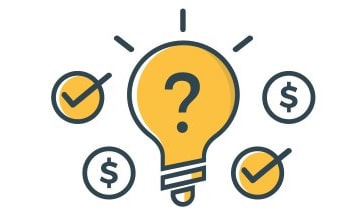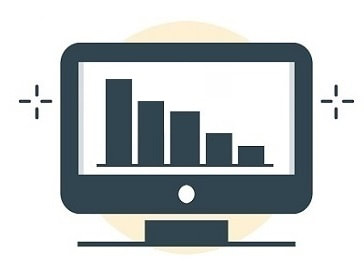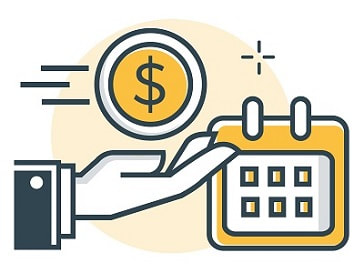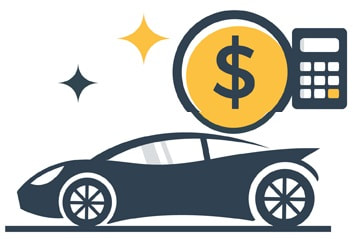20 Things to Stop Buying to Have More Money
Our carefully curated list of 20 items pinpoints the everyday expenses that you can effortlessly reduce or remove altogether from your spending, paving the way for more thoughtful use of your money and a clearer path to financial freedom.
Updated 8 November 2023
Overview:
This is the first edition of this guide, and we plan to keep building on it; please contact our research team. with any suggestions or questions.
Related Guides:
- In an age where the latest gadgets and fashion trends tempt us at every turn, it's easy to fall into the trap of buying things we hardly need and acquiring items that add little joy to our lives or value to our well-being.
- This ever-growing tendency towards needless consumption not only clutters our spaces but also depletes our financial reserves. Our mission is to guide you away from this path and towards a more mindful and fulfilling way of living.
- Alarmingly, a growing body of research indicates that an increasing number of Kiwis are living without the safety net of savings, placing them in a precarious position financially. It's an unsettling trend and one that we cannot ignore.
- We suspect that impulse purchases and the lure of 'must-have' items are partially to blame. These seemingly harmless spending habits can, over time, lead to a precarious financial state where debt is constant and savings are a mere afterthought.
- This guide has been crafted to shine a light on those insidious, everyday expenses that, while they may seem insignificant in isolation, cumulatively drain a shocking amount of your hard-earned money.
- Life is far too precious to be burdened by constant financial stress, yet this is the reality for too many New Zealanders who find themselves trapped in debt, their savings non-existent.
- The curated list that follows is a blueprint for transformation. It is the first step in altering deep-seated spending habits that have long gone unchallenged. By identifying and understanding where your money is going, you can begin to take back control, setting the stage for a future where financial stability isn't just a goal but a reality.
- We hope to help anyone reading this guide to break free from the cycle of endless consumption and step into a life where every dollar is spent with intention, propelling you towards financial freedom and the peace of mind that comes with it.
This is the first edition of this guide, and we plan to keep building on it; please contact our research team. with any suggestions or questions.
Related Guides:
MoneyHub Founder Christopher Walsh Explains Why We've Published this Guide:
|
Living in New Zealand is a dream with its stunning landscapes and friendly communities. But let's face it, life here isn't cheap. The cost of living continues to rise, which can catch even the most budget-conscious Kiwi off guard. MoneyHub has never been more popular, and we wish this weren't the case!
I'm a big believer that every single dollar matters. It's not just about how much you have but how you use what you've got that counts. That's why I always say to anyone listening: take a good, hard look at your spending. Check your bank statements and really think about what you're spending your money on. It's often the small things that add up without you realising it, and they can take a big chunk out of your wallet over time. We all know how easy it is to let money slip away. Nowadays, with everything set up to be automatic, from bills to the tempting click of online shopping, it's more important than ever to keep track. If you're not careful, before you know it, you could be wondering where all your money went. Every dollar you don't notice going out the door is a dollar that could have been saved or spent on something special that adds joy to your life. In this guide, we're keeping it simple. We've put together a list of 20 things that might be quietly draining your bank account. We're talking about those regular expenses you might not think much about, but over time, they can hold you back from saving up for what you want. Let's take control of our spending and make our money work for us rather than being a pawn in the game. |
Christopher Walsh
MoneyHub Founder |
20 Things to Stop Buying to Have More Money
Buying New CarsNew cars have a great feel, smell, shine and look, but they're a money evaporator; the price of a new car drops as much as 40% in the first year. Yet for many, buying new and financing the difference is second nature - and it's this difference that can be a significant amount of money that racks up a lot of interest costs.
For example: Is spending $10,000 to upgrade a car worth the money? At today's call account and term deposit interest rates that $10,000 could be worth $10,400 or $10,500 next year; meanwhile, the car may have dropped in value to $8,000. As time goes on, the invested money grows while the asset value of something that depreciates shrinks. MoneyHub Founder Christopher Walsh shares his view on car finance: "Too many New Zealanders borrow money to buy high-end cars that they can't afford without some sacrifices. I don't believe putting an above-average car on finance is the way to get ahead financially. However, car finance is big business, and for certain people, it's cost-effective. But I'm tired of hearing about, first-hand, 20-year-olds who want to get into debt to buy a $20,000+ car with either no savings or a small 5% or 10% deposit. The costs of running a car are high – insurance and fuel have never been higher, meaning you're looking at several hundreds of dollars per month in additional costs. I realise living in New Zealand and car ownership go hand-in-hand. However, you can own a car and be financially responsible by looking for a capable run-around that also goes the distance. After all, it's commonly accepted that many wealthy people drive old cars per this 2022 study in the USA. |
Souvenirs from HolidaysFridge magnets don't demand space, but lots of souvenirs do. Do you need t-shirts from every city? Beer or shotglasses from every factory tour? There's a lot of temptation, but so many are a waste of money, and you get stuck having to carry it around and then overflow cupboards back home.
Christopher comments: My favourite souvenirs are the ones I can eat and drink back home. Yes, there's a risk of a bottle breaking in the suitcase, but it's one that I'll take. It's also nice to share things with friends and family back home. |
Updated or New Versions of Something that Already WorksApple's business model is to force people to upgrade by stopping support for existing products. However, many people upgrade before that happens and pay a high price for doing so. Before upgrading something that works perfectly well, make sense of the extra features and if that justifies the cost. It's not just Apple encouraging the upgrades; there are also continuous upgrades of TVs, computers, tablets, sports equipment, cars, etc.
Christopher comments: "Smart money buys quality and has it run the distance. New Zealanders driving used Toyotas for years and years won't likely be paying finance on the car. And those with older Android phones won't have direct debits with Spark, One NZ or 2degrees for monthly phone repayments. Companies want you to spend so they can make profits, but you win when you say no and stick to what you have when it already works". |
Investing in Something You Don't UnderstandIn 2020 and 2021, many New Zealanders invested for the first time. There were some wins, but many lost money as shares soared and crashed. Examples include Allbirds, My Food Bag and Cannasouth, but there were many more. Others invested in property powered by low-interest rates and found that the rent from the investment property they now owned was less than the cost of the mortgage, and that's before all the insurance, rates and management costs. Investing decisions need to be made carefully.
Christopher comments: "No one will care about how your money is invested as much as you will. There are also no shortcuts to wealth and financial freedom. MoneyHub is a big fan of term deposits, call accounts, managed funds and ETFs. This is because they're lower risk than picking shares or going into a property deal, which often involves taking on a lot of debt. Whatever you decide to do, please invest carefully – there's too much to lose to rush into something that doesn't make sense". |
Fast FashionFast fashion retailers are, arguably, slowly going out of fashion as consumers begin to see the clutter they create, the environmental damage they cause, and the indecisions they lead to about choosing what to wear. It's very easy to buy fast fashion – it's in the name, but $50 here and $100+ there soon adds up.
New Zealanders who value financial freedom buy less clothes and invest in quality. Quality may cost more upfront, but it goes the distance. A $5 tee, a $10 top, and a $20 drees probably won't. Christopher Walsh comments: "I've never been a fan of fast fashion, mainly due to the consumerism it relies on and the use of buy-now-pay-later apps to fund it. However, it's quickly seen as an environmental hazard given how often the items are discarded. And in some cases, fast fashion suppliers source from low-cost sweatshop labour. All in all, so many retailers sell 'wear it twice' clothing that the world doesn't need". |
Overloading on Christmas PresentsIn the festive spirit, many New Zealanders dive deep into their wallets, spending an average of $1,500 on Christmas presents each year.. The pressure to purchase can turn wanting to make people happy into an excessive gift-giving spree, where the quantity of presents overshadows the holiday's essence and leaves bank accounts drained come January.
We think too many items are bought for people who don't need them - and it's a vicious cycle that carries on year after year, wasting money along the way. Christopher comments: "Generosity isn't measured by the price tag. A mountain of gifts under the Christmas tree may look impressive, but it's fleeting joy with lasting financial repercussions. We encourage a shift towards thoughtful, meaningful gifts that enrich experiences rather than empty savings. Before you buy another present, ask if it's truly for them, or to fulfill an expectation. Crafting a gift, offering a helping hand, or even gifting a financial contribution to a child's savings account could be far more valuable. Remember, the best presents aren't bought; they're felt." |
Items on SaleSales arguably only benefit retailers; they promise substantial savings and incredible deals, but the reality is often less straightforward. The lure of slashed prices can lead to the accumulation of items that we wouldn't purchase at full price, or even need. Retailers bank on the psychological impact of seeing a discount, understanding that the adrenaline rush of 'getting a deal' often trumps rational spending.
We're not convinced that anyone 'saves' when they buy things they don't need. Christopher comments: "It's not saving if you're spending on the unnecessary. The mantra 'it's on sale' should never override 'do I need it?'. The sales cycle can be relentless – from Boxing Day to mid-season markdowns and Black Friday, there's always a new sale, and with it, the temptation to spend on items that become clutter rather than necessities. Budget-savvy New Zealanders know that the real saving grace is resisting the allure of sales and only striking when something they've planned and budgeted for hits the discount racks. It's not just about spending less, but spending smart – make the sales serve you, not the other way around." |
Extended WarrantiesThe allure of extra protection can be enticing, but we question how much value they provide. They're often pitched as a safety net, ensuring you're covered should anything go awry with a big item purchase. However, the reality is that many times, the original warranty offers ample protection, as does the Consumer Guarantee Act. Consumer isn't a fan of extended warranties, and we're not either. However, any retailer selling makes a solid profit from signing you up for 'protection'.
Christopher comments: "It's a common mistake among Kiwis to be lured by the security that extended warranties seem to promise. However, most of us don't realise that we're often already covered or that the likelihood of needing such warranties is minimal. It's crucial to do your homework, understand your existing coverage, and avoid falling into the trap of unnecessary expenses. Consumer has researched such warranties further - their 2023 article has valuable insights". |
Magazine Subscriptions You Don't ReadThere's a tactile satisfaction in flipping through glossy magazine pages, but how often you read them in print vs online is worth considering. Much of the content from these magazines is readily available online for free. There is a risk of magazine subscriptions going the way of unused gym memberships – stacking up unread and causing feelings of guilt. In such cases, it's best to call the cancellation number, although you'll likely be offered a huge discount to continue your subscription.
|
Gym Membership You Don't UseFitness aspirations often drive us to make commitments that our routines can't sustain. A gym membership can be a significant investment, and it's only worth it if utilised regularly. Otherwise, it becomes an expensive reminder of unfulfilled goals. If your gym visits are not part of your daily or weekly routine, it might be time to re-evaluate your fitness strategy. Gym contracts can be aggressive but can be cancelled, and the cost savings are significant.
Christopher comments: "I've seen so many Kiwis enthusiastic at the start of the year, signing up for gym memberships, only to see their momentum fizzle out by March. While staying fit is crucial, it doesn't necessarily require a costly gym subscription. Running, walking, and cycling are convenient alternatives that don't have a weekly cost. |
Eating Out RegularlyThe joy of trying out new dishes and the feeling of a buzzy environment out of home is usually a delightful experience. However, the costs add up, and before you know it, eating out becomes a significant cost. Add in drinks, and you're easily looking at $60+ per person each time.
Christopher comments: "New Zealand boasts some fantastic places to eat that are hard to resist. However, it's not sustainable to always eat out. Rediscovering the joys of home-cooked food saves money but also can be social. For many young New Zealanders, it's not always practical to eat at home when working late or meeting with friends, but saying no is the only way to avoid the continuous debit and credit card charges that soon add up". |
Lotto TicketsThe old saying that Lotto is a tax for people who are bad at maths isn't wrong. Lotto prizes keep going up, as do the ticket prices. While the occasional ticket might be a fun gamble during a mega PowerBall draw, consistently spending on tickets is a waste. Powerball tickets cost more per line, and even though the prizes are big, the odds are decidedly not in your favour and that money could be better invested elsewhere.
Christopher comments: "I've never been a fan of Lotto - the chances of winning are astronomically low, yet the costs to play are high. I like that Lotto is generous with charities all over New Zealand, but it can afford to be given the amount of money it takes compared to the prizes it pays out. Redirecting Lotto ticket money to a savings account, call account or term deposit is an investment you can bank. Lotto tickets enrich others, not you, statistically". |
Expensive CandlesThey're trendy, and there's no denying the charm of a beautifully scented candle lighting up a room. But luxury candles come with a price tag that's hard to justify. Candles from Ecoya go for as much as $65+ each; there are budget-friendly alternatives that offer the same aromatic experience at a fraction of the price.
Christopher comments: "I'm not a fan of expensive scented candles and jokingly tell friends who light them that they're burning money. The market is flooded with affordable options with essential oils that don't have the brand but arguably deliver the same ambience". |
Expensive HolidaysTravelling is undeniably enriching, offering experiences that broaden horizons. However, it doesn't always have to be a trip to the most exotic destinations – a trip to Fiji, Bali or Rarotonga for a couple is likely to cost at least $5,000 for a week away. It's big money. New Zealand has gems waiting to be discovered and explored without the exorbitant costs.
Christopher comments: "New Zealand has endless stunning sites and experiences. Before jetting off overseas, consider exploring closer to home. Jetstar and Air New Zealand offer cheap domestic flights if you book in advance. However, if you don't have the money saved, don't get into credit card debt to pay for a holiday – the costs are too great, and you're taking yourself backwards financially". |
Daily Coffee Shop VisitsIt's a New Zealand-wide habit for many, but a daily coffee ritual is expensive. Five or six flat whites a week will set you back around $2,000. Starbucks Venti-type drinks are even more expensive. Smart money says no to regular coffees and sees them as a treat rather than a daily necessity. The average New Zealander buying a flat white every day will spends around $1,500 a year on coffee per the latest prices and we want to remind everyone that it's an avoidable cost.
|
Frequent SnackingThose mid-day hunger pangs often lead us to bakeries, petrol stations and dairies. Over time, not only does this habit have potential health implications, but the dollar costs also stack up, especially when cheaper and healthier homemade alternatives exist.
Christopher comments: "Most snacks are bad for your health and bank account and give us insidious amounts of sugar when there are healthy alternatives. A guide like has low-cost healthy snacks that don't take us backwards in all senses". |
Subscription BoxesThere's undeniable excitement in receiving a curated box of goodies every month. But it's crucial to evaluate the true value and utility of these items. Are they things you'd purchase anyway, or are they just adding to clutter?
Christopher comments: "While the allure of unboxing new items monthly is tempting, it's essential to discern between need and want. Subscription boxes can sometimes lead to a surplus of items we might not use. A periodic review of all subscriptions can help declutter both our homes and our expenses." |
High-interest Personal Loans, 0% Finance Deals (You Don't Pay Off) and Unpaid Credit Cards"The convenience of 'buy now, pay later' schemes is an alluring trap for consumers, particularly regarding high-priced items like vehicles or luxury furniture. It seems simple: acquire what you want now and worry about the payments later. Yet, the devil is in the details - specifically in the interest rates, which for many New Zealanders hover oppressively around 20% to 25% p.a.
This isn't just a small surcharge; it's a financial anchor that can significantly hinder one's monetary progress. As a result, what starts as a manageable sum can balloon into a $5,000 to $20,000 debt shadow that looms over consumers year after year, siphoning off their hard-earned money in a relentless trickle of interest payments. Christopher comments: "Patience is a virtue, especially in financial matters. The allure of instant ownership is undeniable, but the hidden cost is the hefty interest that often accompanies such financing options, which can turn the dream of ownership into a prolonged financial nightmare. I urge you to consider the full picture: calculate the total cost over time, and you'll likely find that saving up and paying in full is not only more satisfying but also more prudent. Ask yourself, is the burden of debt worth the fleeting satisfaction of immediate possession? In most cases, you'll find it's wiser to wait, save, and make purchases that align with your financial capabilities rather than succumbing to the seductive yet treacherous charm of easy finance." |
Taking a Car when Public Transport Connects You from the Suburbs to the CBDThis is relevant for Auckland and Wellington, which have public transport systems designed for efficiency and convenience. There's always a temptation to take a car, but public transportation can often be quicker, and it will almost certainly be cheaper. The cost of petrol, parking and car insurance are at all-time highs when Auckland Transport, for example, opens more bus lanes, bus routes and train connections.
Christopher comments: "I accept it's not cultural to take buses and trains for many – New Zealand is car-tastic and getting on the bus isn't always realistic. But for many, it will work. So much traffic goes to and from the CBDs of Auckland and Wellington, but public transport is faster at peak times. I accept that park-and-ride spaces are largely insufficient, and you'll usually need two buses to get from home to the CBD. However, that's not unusual for public transport, and if you can work the schedules, it will work. I seldom drive from the North Shore to Auckland; it's slow and annoying, and I dislike the parking costs (and the private companies who operate them). While it's a two-bus connection, it works well if you commit to relying on the bus. There are teething issues – e.g. connecting buses drive off as an NX1 or NZX2 arrive, but generally it works well". |
Uber Eats and Other Food Delivery ServicesUber Eats is heavily advertised and has changed the way many Kiwis dine. However, this convenience comes with added costs that make a simple delivery fast approach (or exceed) $100.
Costs include:
Christopher shares: "Uber Eats is, in effect, a lazy tax that so many of us are comfortable paying week after week. I can't believe the prices, and it's remarkable people are happy to pay them. I accept that convenience does have a cost; I just don't think Uber Eats and its rivals offer value". |



























